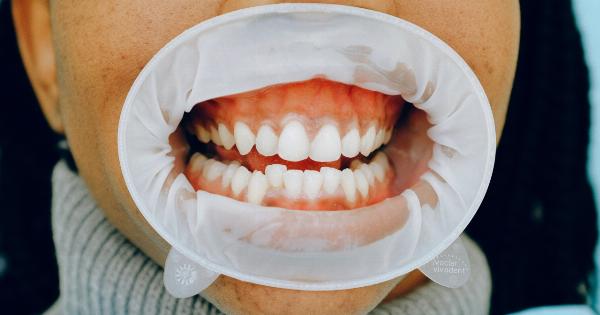Bleeding gums are not only a common dental problem but can also be an indication of a more serious underlying health issue.
Though occasional bleeding while brushing or flossing may not be a cause for concern, persistent bleeding gums should not be ignored. This article explores the various reasons why your gums may bleed and what it could reveal about your overall health.
Gingivitis: The Culprit Behind Bleeding Gums
Gingivitis, an early stage of gum disease, is often the primary cause of bleeding gums. Poor oral hygiene, plaque buildup, and bacteria can lead to inflammation and infection of the gums.
When left untreated, gingivitis can progress into a more severe form of gum disease called periodontitis, which can result in tooth loss and other health complications.
Vitamin Deficiencies and Bleeding Gums
A deficiency in certain vitamins can also contribute to bleeding gums. Vitamin C deficiency, in particular, weakens the blood vessels, making them more prone to bleeding. Similarly, a lack of vitamin K can hinder blood clotting, leading to bleeding gums.
Incorporating a balanced diet rich in fruits, vegetables, and other nutrient-dense foods can help prevent such deficiencies.
Medication Side Effects
Some medications, including blood thinners and anticoagulants, can increase the likelihood of bleeding gums. These medications interfere with the blood’s ability to clot, making even mild irritation or injury to the gums result in bleeding.
If you experience persistent bleeding while on medication, consult your healthcare provider to explore potential alternatives.
Hormonal Changes and Bleeding Gums
Women may notice bleeding gums during certain hormonal changes such as puberty, pregnancy, and menopause. The increased levels of hormones can affect the blood flow to the gums and cause them to become more sensitive and prone to bleeding.
Nevertheless, maintaining good oral hygiene practices throughout these phases is crucial to prevent any further complications.
Uncontrolled Diabetes and Gum Health
Diabetes is known to impair blood flow and weaken the body’s ability to combat infections. Consequently, individuals with uncontrolled diabetes are more susceptible to gum disease, which can manifest through bleeding gums.
Proper management of diabetes, including regular dental check-ups, is essential to prevent complications and maintain oral health.
Stress, Poor Nutrition, and Bleeding Gums
High stress levels can compromise the immune system and hinder the body’s ability to fight off infections, including gum disease. Additionally, a diet lacking essential nutrients weakens the immune system, making the gums more prone to bleeding.
Incorporating stress-reducing techniques and maintaining a healthy diet can significantly contribute to gum health and overall well-being.
Leukemia: A Rare but Serious Cause
Though rare, persistent bleeding gums can sometimes indicate a serious condition such as leukemia. Leukemia is a type of cancer that affects the blood and bone marrow, resulting in an abnormal production of blood cells.
If bleeding gums are accompanied by other symptoms such as fatigue, unexplained weight loss, or frequent infections, it is crucial to seek medical attention promptly.
Poor Oral Hygiene Practices
Inadequate oral hygiene practices, such as infrequent brushing and flossing, can contribute to gum inflammation and bleeding. Plaque buildup and bacteria irritate the gums, leading to inflammation and potential infection.
By practicing proper oral hygiene, including regular brushing, flossing, and dental check-ups, you can significantly reduce the risk of bleeding gums and gum disease.
Smoking and Bleeding Gums
Smokers are more likely to develop bleeding gums and other oral health problems. Smoking weakens the immune system and restricts blood flow, making it harder for the gums to heal and fight off infections.
Quitting smoking not only improves oral health but also promotes overall well-being.
Periodontitis: Advanced Gum Disease
If left untreated, gingivitis can progress into periodontitis, a severe form of gum disease. Bleeding gums, along with symptoms such as persistent bad breath, receding gums, and loose teeth, may indicate the presence of periodontitis.
Early intervention and proper dental care are crucial to prevent further damage to the gums and teeth.
Conclusion
Bleeding gums should never be ignored as they can serve as a warning sign for various underlying health issues.
Maintaining proper oral hygiene practices, including regular brushing, flossing, and dental check-ups, is key to preventing gum disease and associated complications. Additionally, addressing any vitamin deficiencies, managing stress levels, and seeking prompt medical attention for persistent symptoms can contribute to overall gum and systemic health.






























